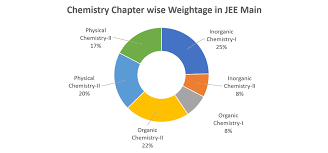What are the most scoring chapters for JEE Mains?
VECTORS & 3-d Geometry = The questions asked from these chapters are easy and take very less time to solve.About 20 marks you can expect from this topic out of 120 in math.

Mathematical reasoning = One question definitely comes from this topic and also it is easy to do.This chapter can be completed in a day.
Coordinate Geometry = It comprises straight lines, circle ,conic section(parabola,hyperbola,ellipse).about 15 marks is ask from this topic and questions can be solved in less time and with a great ease.
Optics = This topic comprises about 10 marks and is not so difficult to do compared with others.
Principles of Communication and electromagnetic waves = Just read N.C.E.R.T for this topic and you will fetch 4–8 marks.
Electronic devices and Semiconductors = Again reading N.C.E.R.T is sufficient for it to get 4 marks.
Chemistry in Everyday Life = 1 question definitely comes from it read N.C.E.R.T.
Polymers and molecules =Again 1 question from N.C.E.R.T exactly.
Surface Chemistry = Easy topic to fetch marks only theory and no tough concepts.
So friends, these were easy and scoring topics in which everybody can score .Just by these topics you can get about 60 marks which is 1/6th and it matters a lot.Also these topics don’t require much time hardly month. So when compared to other topics like mechanics and calculus it is a great deal.
Physics:
- Mechanics
- Oscillations And Waves
- Rotational Motion
- Electrostatics
- Atoms And Nuclei
- Current Electricity
- Magnetic effect of Current and Magnetism
The Oscillations and Waves chapter covers the highest percentage of test questions, roughly 10%. In previous tests, we also saw problems from disciplines such as electrodynamics, modern physics, optics, etc.
- As a result, a student should begin with these chapters because they were commonly asked in prior year papers.
- After you’ve finished these chapters, you may go on to the easier ones, such as Units and Dimensions, Error Measurement, and Vectors.
- All you need to do is comprehend the notions of each chapter.
- If you choose this route, your Physics preparation will be excellent, and you will score well in this part.
Mathematics:
- Integration
- Differentiation
- Probability
- Three Dimensional Geometry
- Trigonometry
- Vector Algebra
- Conic Sections
- Straight Lines
- Sets, Relations and Functions
- Matrices And Determinants
After you have finished the most important chapters, you should go on to the following: Limits and Continuity, Permutation and Combination, Quadratic Equations, Complex Numbers, Binomial Theorem, Circles, Sequences and Series, and Differential Equations.
- After completing the chapters listed above, you may devote your focus to the easier and less important chapters such as Inverse Trigonometry, Application of Derivatives, Heights and Distances and Statistics.
- The base of Mathematics is built on Sets, Relations, and Functions, so you don’t have to start learning from the beginning.
Chemistry:
- Organic Compounds Containing Oxygen
- Equilibrium
- Chemical Kinetics
- Transition Elements (d and f block)
- s-block Elements
- Chemical Bonding And Molecular Structure
- Some Basic Principles Of Organic Chemistry
- p-block Elements
- Coordination Compounds
- Chemical Thermodynamics
-
The Organic Compounds Containing Oxygen chapter accounts for the most number of questions in the JEE Main exam. All of the chapters mentioned are always the most important chapters for JEE Main 2022, and they will undoubtedly be tested.
-
After completing these chapters, you should proceed to the following important ones: Organic Compounds Containing Nitrogen, Redox Reactions, Biomolecules, Electrochemistry, Atomic Structure, Polymers, Solid State, Some Basic Concepts in Chemistry and Classification of Elements, and Periodicity in Properties.
-
Furthermore, once you’ve finished these chapters, you may go on to the easier ones, such as Hydrogen, States of Matter, Hydrocarbons, Surface Chemistry, and so on.
Join Exprto for personal mentorship